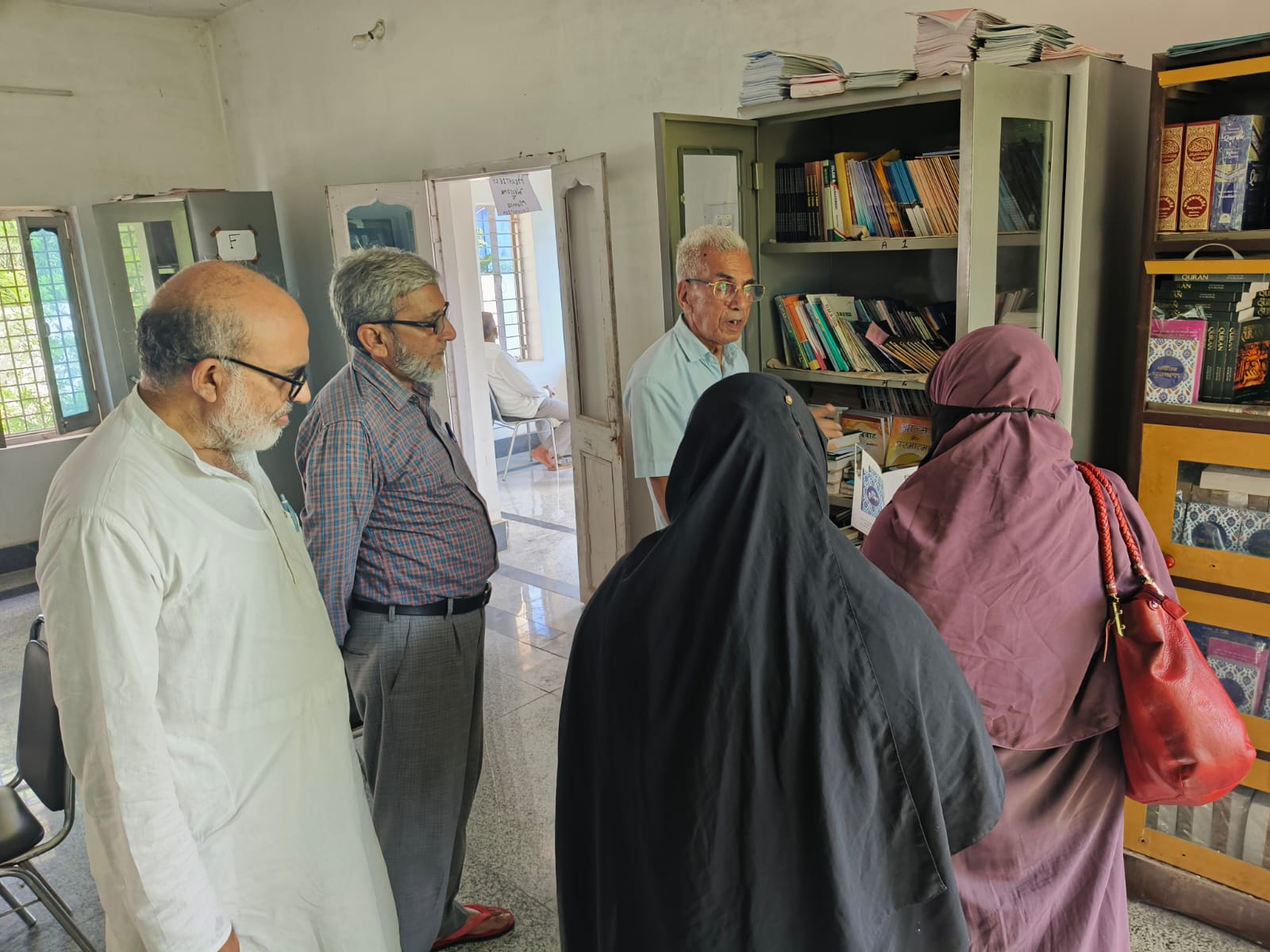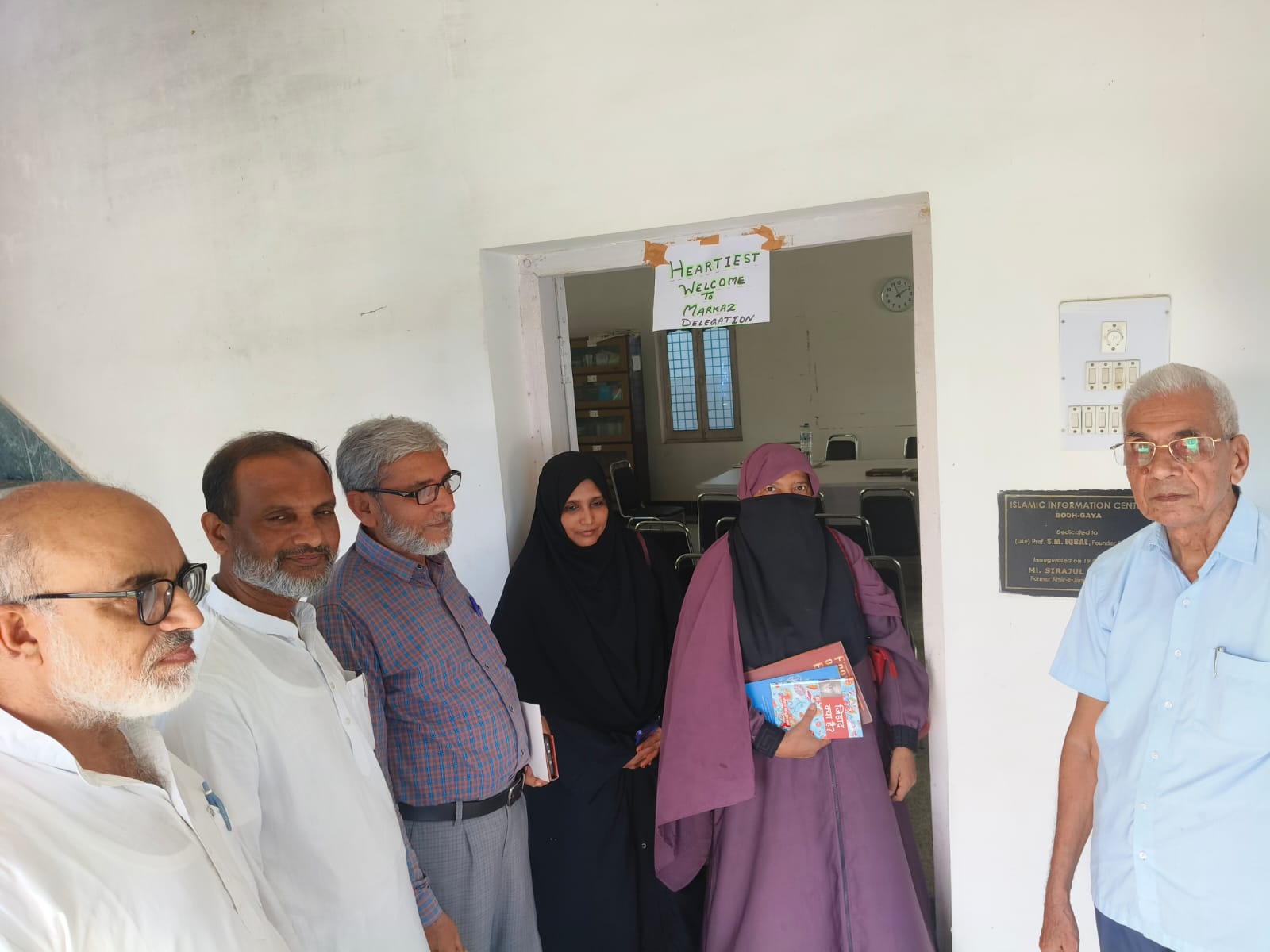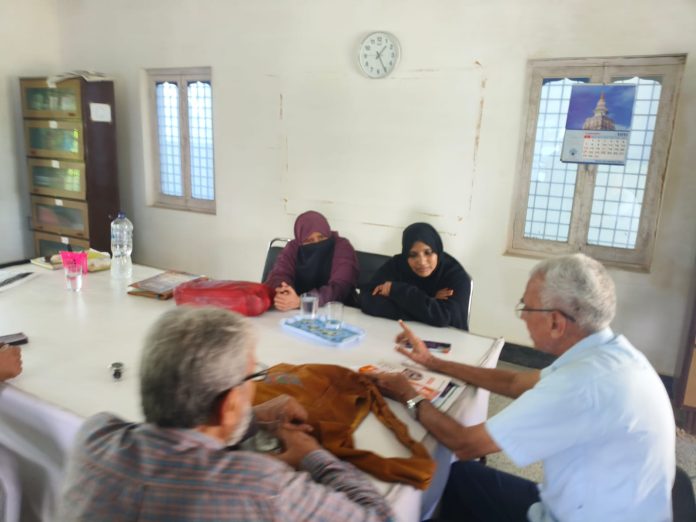– Rabia Basri
In the heart of Bodh Gaya, a global symbol of peace and spiritual enlightenment, stands a lesser known yet profoundly meaningful place: the Islamic Information Centre. On a recent journey through Bihar, I discovered how this quiet institution speaks a universal language of compassion, dialogue, and shared humanity.
A Journey Beyond Destinations
Travel often brings unexpected discoveries. My recent visit to Bihar was one such journey of insight and inspiration. After exploring various institutions in Gaya, our next stop was the Islamic Information Centre, nestled in the serene surroundings of Bodh Gaya, a city revered as the birthplace of the Buddha’s enlightenment.
 Here, amid prayer flags and pilgrims, the Centre stands as a symbol of peace and mutual understanding, an intellectual bridge between faiths.
Here, amid prayer flags and pilgrims, the Centre stands as a symbol of peace and mutual understanding, an intellectual bridge between faiths.
The Spirit of Welcome
What touched me most was the spirit of welcome the Centre radiates. Whether you are a researcher, a student, or simply someone curious about Islam, the doors are open. And not just to learn about Islam itself, but to enter into conversations that foster mutual respect and shared humanity. The place invites not only learning about Islam but also participating in a dialogue of hearts.
A Vision Rooted in Brotherhood
The Centre was founded by the late Prof. Syed Mohammad Iqbal, whose life’s mission was to nurture bonds of brotherhood and encourage dialogue among diverse communities. As I walked through its doors, I could almost sense his vision alive in the books, in the silence, and in the thoughtful faces of those who carry forward his legacy.
 Inside, shelves brim with literature on Islam in multiple languages, texts that go beyond ritual and law to reveal Islam as a universal message of Divine Truth. The Centre is not merely a library; it is a living invitation to learn, question, and reflect.
Inside, shelves brim with literature on Islam in multiple languages, texts that go beyond ritual and law to reveal Islam as a universal message of Divine Truth. The Centre is not merely a library; it is a living invitation to learn, question, and reflect.
A Lively Forum of Ideas.
What I found particularly fascinating was how the Centre isn’t just a quiet library. It also serves as a lively forum. Programmes here include interfaith dialogues, discussions on religious teachings, and multimedia presentations on Islam’s cultural and intellectual contributions. In an age where misunderstandings so often overshadow genuine engagement, this felt like a refreshing oasis of dialogue and respect.
Guided by Dedicated Leadership
Formally inaugurated on 19 February 2006 under the guidance of Maulana Sirajul Hasan, former President, Jamaat-e-Islami Hind, the Centre continues to flourish under a dedicated team comprising Chairman: Rizwan Ahmed Islahi, Ameer-e-Halqa, JIH Bihar; Vice Chairman: Prof. Masroor Ahmad, Ameer-e-Maqami, Gaya; and Director: Azmat Hussain Khan.
Their collective mission is to promote interfaith harmony and social organisation.
Beyond Walls and Words
At the Islamic Information Centre, engagement extends beyond walls and formal meetings. The team actively visits temples, churches, and other places of worship, sharing tea, conversations, and goodwill. Through these genuine interactions, they nurture a mutual understanding of the true essence of all faiths. Recognising that rituals and practices may differ, the Centre emphasises the shared philosophy of humanity and truth as the foundation for peaceful coexistence. By promoting dialogue, exchanging ideas, and addressing misconceptions, the Centre strives to build a harmonious, balanced, and compassionate society, one where every individual regard others as members of a universal family.
When I asked how similar efforts could be initiated elsewhere, the Director offered a thoughtful strategy. Azmat Hussain Khan, Director of the Islamic Information Centre, Bihar, suggested beginning by connecting directly with professors or heads of theology departments from different faiths. The key, he emphasised, is to first understand their perspectives, ask about their religious philosophies, and they will often share literature or offer thoughtful insights. Record these conversations, study them carefully, and let that serve as your entry point for meaningful dialogues.
He further recommended sharing Prophet Muhammad’s Last Sermon, explaining that the Prophet’s message was not confined to Muslims but intended for the welfare of all humanity. He advised avoiding direct quotations from the Qur’an at the outset; instead, begin with this universal message of compassion, justice, and moral responsibility, one that resonates across faiths and cultures.
Building Bridges Through Knowledge
As I listened to the Centre’s vision being explained, one initiative left a lasting impression on me, their plan to sponsor research fellowships for interfaith comparative studies. The goal is to highlight common teachings across religions while also encouraging a healthier appreciation of differences. It felt like a thoughtful way of weaving bridges where gaps too often exist.
A Light in the Land of Enlightenment
Leaving the Islamic Information Centre, I felt a deep sense of hope. In Bodh Gaya, a land synonymous with awakening, the Centre adds its own gentle light, reminding every visitor that peace and understanding are the true meeting points of all faiths.
As our visit came to an end, the Director shared a timeless message he often repeats at the Centre and at the Place of Supreme Enlightenment:
“The most precious gift in this world, available every moment, is love. If we share it freely, our purpose becomes easy.”
‘Tum pyaar ki saughaat liye ghar se to niklo, Raaste mein tumhe koi bhi dushman na milega.’
(Step out of your home carrying the gift of love / You’ll find no enemies along the way.]
If we move forward with compassion and humanity, the world will become peaceful. That is the true purpose of interfaith dialogue.
These words stayed in my mind long after I left the Islamic Information Centre. In a world with many divisions, the message from Bodh Gaya felt clear and important. Good communication between different religions is not about trying to change other people or argue. It is about recognising the value in every person, no matter their faith or background.
When people from different religions talk honestly and with understanding, it can help heal problems. It reminds us that values like honesty, compassion, justice, and respect are shared by everyone. They are not owned by any one religion but belong to all of humanity.
This is a simple reminder that peace does not come from rules or force. It comes from people understanding each other and choosing to be kind instead of fighting.
That, indeed, is the essence of the message the Islamic Information Centre carries, a message that the world, now more than ever, needs to hear.
[The writer is National Assistant Secretary of Jamaat-e-Islami Hind]




